News
Kaduna State Government Extends Quarantine By 30 Days
Kaduna State Governor Nasir El-Rufai has extended the quarantine orders being enforced in the state for another 30 days. The governor’s decision follows a recommendation to that effect by the State Standing Committee on Covid-19, which is chaired by the Deputy Governor, Dr. Hadiza Balarabe. This is effective from today, 26th April 2020.

With Covid-19 cases rising rapidly in neighbouring states and the FCT, and with strong evidence of interstate travel being a major means of spreading the virus, the Standing Committee’s evaluation is that measures to protect Kaduna State residents require further strengthening and more vigorous enforcement.
Malam Nasir El-Rufai has endorsed this evaluation and has accordingly reviewed the Quarantine Orders to strengthen the provisions against unauthorised movements. The two-day window during which the restriction of movement is relaxed on Tuesdays and Wednesdays has been reduced to only one day.
Henceforth, only Wednesdays will be lockdown-free, until the trajectory of Covid-19 infections becomes clearer.
All persons that venture out of their homes for whatever reason must wear facemasks and observe social distancing everywhere they go, in markets and in authorised vehicles. Government is making efforts to provide facemasks for poor and vulnerable residents, and it appeals to everyone that can afford it to get their tailors to make them cloth facemasks which they can wash after every use. The government also encourages tailors to produce facemasks for sale to those that are neither poor nor vulnerable.
Wearing of facemasks will be robustly enforced as a critical public health measure to reduce person-person transmission.
The state government said that the measures announced on 26th March 2020, to contain Covid-19 remain in force and have been renewed. These were imposed in exercise of the powers vested in the Governor by Section 45 of the Constitution of the Federal Republic of Nigeria 1999, (as amended), Sections 2 and 8 of the Quarantine Act 1926, now known as CAP Q2, Laws of the Federation of Nigeria 2004 and the Public Health Law of 1917.
Therefore, further to these declarations, and in accordance with the law, the quarantine orders imposed at midnight on Thursday, 26th March 2020, are further extended for another 30 days, with the following conditions, amongst others:
i. All residents of Kaduna State are quarantined and must stay at home.
ii. No office, event centre, market, shop or business of any sort or place of worship is allowed to open;
iii. The only category of persons exempted are workers in essential services such as health workers, the fire service, water corporation, electricity distribution and security personnel. Tankers conveying fuel to petrol stations are also permitted to move;
iv. Businesses in the food and pharmaceutical value-chain are exempted; and shall enjoy the protections accorded to other essential services;
v. Schools, places of worship, event centres, sports grounds, bars, restaurants, public parks and all other places where large crowds could gather are to remain closed until further notice.
vi. Residents are advised to stay at home, observe social distancing, avoid large gatherings, wear facemasks and wash their hands regularly with soap and water.
The Quarantine Orders prescribe fines, imprisonment and forfeiture for violations of the provisions specified therein.
The Kaduna State Government has clearly stated that no visitor is welcome to enter the state while the Covid-19 pandemic is raging. Entry into or passage through Kaduna State is prohibited whilst the Quarantine Orders remain in force. Persons seeking to come into the state will be denied entry. Such persons will be given the option of returning to their take-off points or entering isolation for 14 days in locations and conditions that are so austere that nobody can mistake them for holiday resorts.
The vehicles being used to enable such attempts to breach the quarantine conditions will be confiscated and forfeited to the government. The companies operating those vehicles will also be prosecuted and shall lose their license to operate in the state, even after the Covid-19 pandemic is contained. Within the state, vehicles of whatever type that are determined to be in violation will be confiscated and forfeited to the government, while the persons driving them will be fined, and may be imprisoned upon conviction. Motorcycle taxis and tricycles (popular known as Keke Napep) are prohibited in the state. Persons driving or riding in them shall be prosecuted while the vehicles shall be forfeited upon conviction.
Mobile courts have been empowered by the Quarantine Orders to try violators and impose the prescribed penalties, including fines, imprisonment and forfeiture of vehicles, upon conviction.
Conscious of the need to keep vital industries and businesses in the farming, food and pharmaceutical value chains operational, trailers and trucks conveying food, seeds, fertilizer and medical products are exempted from the restriction of movement. Such vehicles must, however, not carry more than three persons, including the driver. Otherwise they will be deemed to be engaging in illegal transport of persons which is a breach of quarantine orders.
Anyone thinking of disguising as a food vendor by parading a few bags of rice or other food in their cars must cut the pretence as they will be prosecuted at the mobile court and the vehicle forfeited to the government upon conviction.
The Kaduna State Government has also directed the Ministry for Local Government to ensure that local government chairmen are fully involved in enforcing the quarantine orders in their council areas. The Ministry of Local Government has also reminded traditional and community leaders of their obligation to report violations of quarantine conditions in their localities. Places of worship that violate the quarantine orders in any form will lose their titles to the land and the buildings will be demolished.
Regarding burials, guidelines from the Ministry of Health will outline the maximum number of persons that can attend any burial, while observing safety and social distancing rules. Gatherings for condolence are prohibited until the Covid-19 pandemic is declared over. The burial of any fatality from Covid-19 will be in accordance with the strict protocol to be announced by the Commissioner of Health.
The extension of the quarantine conditions imposes an obligation to make provision for the low income, poor and vulnerable persons that would be adversely affected, as they may be unable to earn any income while the lockdown persists. The state government has done a first phase of distribution of food across 59 community clusters in nine local government areas. The next phase will be conducted across the 23 local government areas.
To fund the provision of these support packages, the Kaduna State Government expects all those fortunate enough to still earn a regular income to live up to their neighbourly responsibility towards those who are unable to earn any money due to no fault of theirs. Therefore, the less than 100, 000 persons who work for the Kaduna State Government as political appointees and public servants must contribute financially towards enabling the almost 10m persons living in the state to survive and thrive in this emergency period.
Therefore, the Kaduna State Government has directed all its senior appointees, including Commissioners, Permanent Secretaries, Special Advisers and Heads of Agencies to each donate N500,000 in April 2020. In subsequent months, they will donate 50% of their salaries until the quarantine ends. Other categories of political appointees will also be making monthly donations to support the provision of relief to the low income, poor and vulnerable residents of the state.
Career public servants earning a net pay of N67,000 and above after tax will also donate 25% of their pay monthly whilst the quarantine conditions are in place. No public servant will have less than N50,000 monthly to manage in this emergency period.
We are obliged to demonstrate that as government workers, we care enough for others to donate part of our earnings for their wellbeing. As a state government, we are also seeking donations from high net worth individuals, the private sector and development partners to support our efforts to contain Covid-19 and its consequences.
The Kaduna State Government wishes to inform potential donors that we prefer donations to be in kind: personal protective equipment, PCR machines, medical facilities and equipment, facemasks, food, pharmaceuticals, and fertilizer, seeds and seedlings and other support for farmers. The state government will publicly acknowledge all donations in addition to the letters of appreciation that shall be sent to all donors.
Signed
Muyiwa Adekeye
Special Adviser to the Governor (Media & Communication)
26th April 2020
News
Wole Olanipekun, Taiwo Oyedele Urge South-West Governors to Maximise Tinubu Presidency for Regional Growth
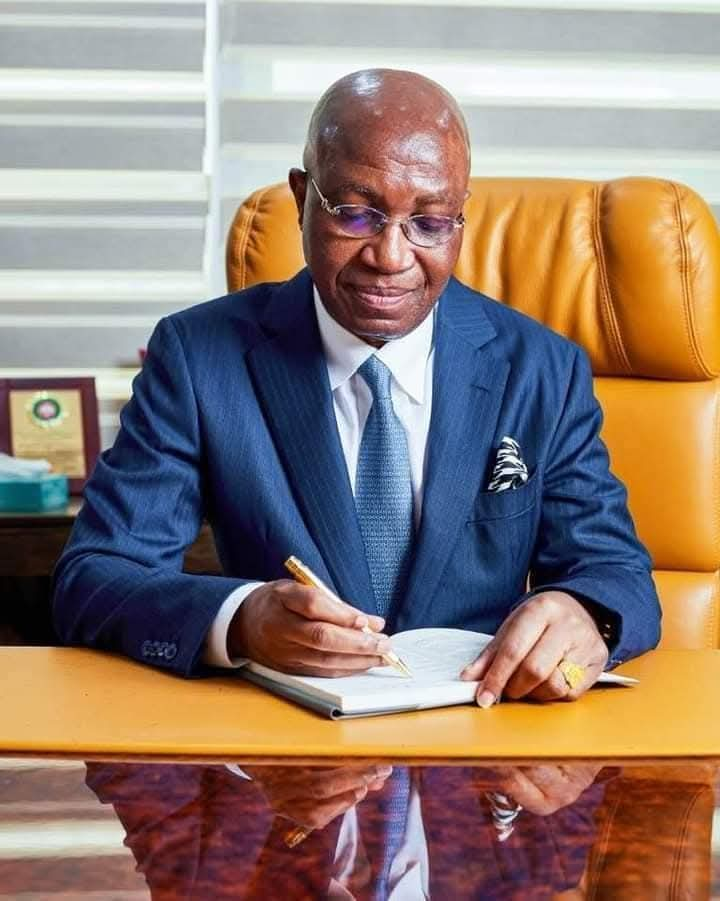
Senior Advocate of Nigeria (SAN), Wole Olanipekun, and Chairman of the Presidential Fiscal Policy and Tax Reforms Committee, Taiwo Oyedele, have called on South-West governors and political leaders to fully leverage President Bola Tinubu’s administration to drive accelerated development across the region.
The duo made the call on Monday in Akure, Ondo State capital, while speaking at a public lecture organised as part of activities marking the 50th anniversary of Ondo State’s creation.
They stressed that the South-West must prioritise massive investments in infrastructure, industrialisation, and economic reforms during Tinubu’s tenure to secure long-term regional prosperity.
Olanipekun cautioned that the political advantage of having a South-West president is temporary, noting that President Tinubu’s tenure will come to an end after his second term in 2031.
According to him, the region must act decisively within this window to strengthen its economic base and ensure sustainable development beyond the current administration.
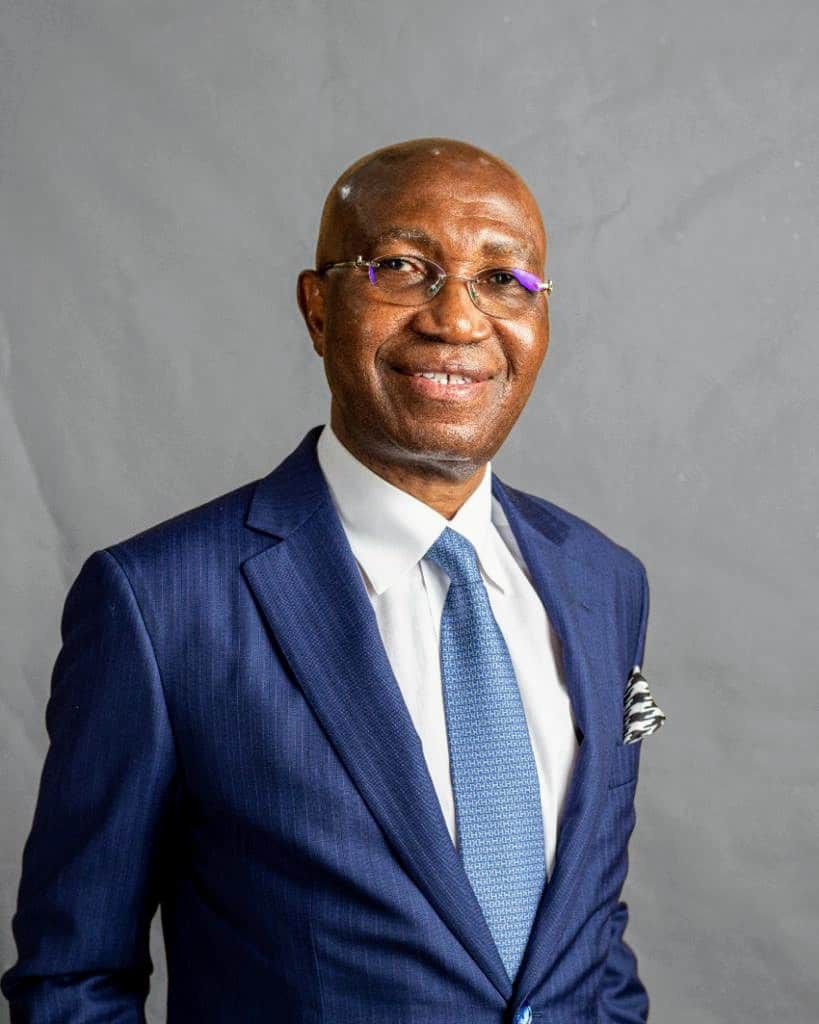
News
BREAKING: Malami Tells Court He Earned ₦12bn+ Legitimately, Seeks Release of Seized Properties
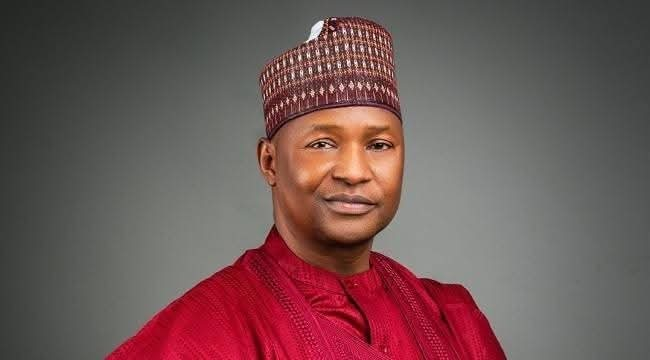
Former Attorney-General of the Federation, Abubakar Malami (SAN), has disclosed details of his earnings while asking a Federal High Court in Abuja to set aside an interim order authorising the seizure of 57 properties allegedly linked to him.
Malami made the disclosure through his counsel, Joseph Daudu (SAN), in a motion on notice filed before the court. The application seeks to vacate an interim forfeiture order affecting three of the 57 properties currently under investigation by the Economic and Financial Crimes Commission (EFCC).
According to the court filing, Malami stated that he had fully and transparently declared his sources of income in his asset declaration submitted to the Code of Conduct Bureau (CCB).
The document outlined multiple income streams, including:
₦374.63 million earned from salaries, estacodes, severance allowances, and related entitlements.
₦574.07 million generated from the disposal of personal assets.
₦10.01 billion recorded as turnover from private business ventures.
₦2.52 billion issued as loans to various businesses.
₦958 million received as traditional gifts from personal friends.
₦509.88 million realised from the launch and public presentation of his book titled “Contemporary Issues on Nigerian Law and Practice: Thorny Terrains in Traversing the Nigerian Justice Sector – My Travails and Triumphs.”
Malami’s legal team argued that the declared earnings sufficiently explain the source of funds used to acquire the properties in question, urging the court to lift the interim seizure order.
The matter remains pending before the Federal High Court as the EFCC continues its forfeiture proceedings.
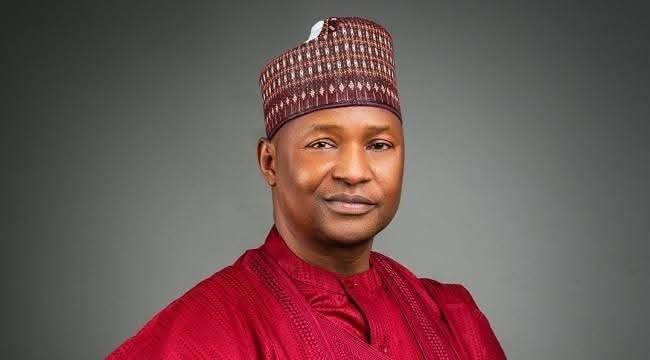


News
MAN Urges Federal Government to Stop NAFDAC’s Sachet Alcohol Ban, Warns of ₦1.9 Trillion Loss
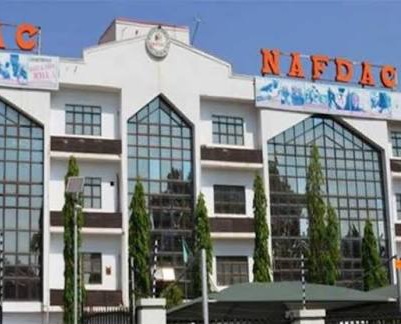
The Manufacturers Association of Nigeria has appealed to the Federal Government to restrain the National Agency for Food and Drug Administration and Control from proceeding with its ban on alcoholic beverages packaged in sachets and small PET bottles, warning of catastrophic economic consequences.
In a statement issued by Director-General Segun Ajayi-Kadir, MAN described NAFDAC’s renewed enforcement action as detrimental to indigenous industrial operators and fundamentally inconsistent with earlier government directives.
The manufacturers’ body emphasized that NAFDAC’s recent move directly contradicts the House of Representatives resolution dated March 14, 2024, which specifically restrained the agency from implementing the punitive ban following comprehensive stakeholder consultations through a public hearing.
“Rather than abiding by the generally agreed resolution, NAFDAC bided its time and chose to rely on a resolution of the Senate that was devoid of the usual stakeholders’ engagement,” Ajayi-Kadir stated, noting that operators now face confusion over conflicting directives from different arms of government.
MAN warned that enforcing the ban would devastate Nigeria’s manufacturing sector, threatening over ₦1.9 trillion in existing investments and triggering the retrenchment of more than 500,000 direct employees alongside approximately five million workers in the indirect value chain.
The association cautioned that the restriction would paradoxically undermine public health by creating market opportunities for illicit, substandard and unregulated products beyond the control of regulatory authorities.
“This is counterproductive as it will open up the market for illicit, sub-standard, and unregulated products. It will lead to an influx of imported alternatives, mostly smuggled. It will deny the government of revenues collectable from the companies,” Ajayi-Kadir declared.
The manufacturers’ group emphasized that alcohol served in sachets by local producers is manufactured under hygienic conditions and certified by regulatory agencies including NAFDAC itself, making the ban particularly contradictory.
MAN also challenged the untested assertion that sachet alcohol drives underage consumption, citing credible and empirical research that contradicts this claim. The industry has independently invested over ₦1 billion in nationwide media campaigns promoting responsible alcohol consumption and discouraging underage abuse.
The association stressed that banning certified products would deny adult consumers with limited budgets access to regulated alcoholic beverages while simultaneously depriving the government of substantial tax revenues.
Food, Beverages and Tobacco Senior Staff Association and National Union of Food, Beverages and Tobacco Employees have joined MAN in opposing the ban, demanding that NAFDAC provide empirical evidence that sachet alcoholic beverages are being consumed by children.
Labor unions have called for the suspension of NAFDAC Director-General Professor Mojisola Adeyeye, accusing her of siding with multinational companies to undermine local manufacturers.
However, NAFDAC has maintained its position, with Adeyeye insisting that enforcement is backed by law following the Senate’s unanimous resolution setting a December 2025 deadline that has now passed.
The NAFDAC chief argued that the proliferation of high-alcohol-content beverages in sachets has made such products easily accessible, affordable and concealable, contributing to widespread misuse and addiction among minors and commercial drivers.
“This public health menace has been linked to increased incidences of domestic violence, road accidents, school dropouts, and social vices across communities,” Adeyeye stated, describing the ban as protective rather than punitive.
In contrast, civil society organization Socio-Economic Rights and Accountability Project has approached the Federal High Court in Lagos seeking injunctive orders to prevent the Federal Government from interfering with NAFDAC’s statutory powers to enforce the ban.
SERAP argues that continued circulation of sachet alcohol violates the National Health Act 2014, the NAFDAC Act and international commitments under the World Health Organization’s Global Strategy to Reduce Harmful Use of Alcohol.
The legal and economic battle over sachet alcohol highlights deeper tensions between public health regulation, economic survival and stakeholder consultation in Nigeria’s policymaking process, with no clear resolution in sight as multiple court cases and regulatory actions unfold simultaneously.
-

 News2 years ago
News2 years agoHardship: We Plan To Establish A National Commodity Board To Crash Food Prices – VP Shettima
-
News8 years ago
Blog Reader; Samson Osagiede Celebrates Fiancè Benedicta Daniels’s Birthday With Sweet Words
-
Home9 years ago
News Channel claims Donald Trump is an orphan from Pakistan,share alleged childhood photo
-
Home9 years ago
Another $175m Found in Patience Jonathan’s wife’s firm’s Bank Account
-
Home9 years ago
Oil Spillage: House of Reps Member Shares Photos of the Water her Constituents Drink .
-
Home9 years ago
Zara Buhari & Ahmed Indimi’s Wedding Access Card
-

 Sport7 years ago
Sport7 years agoModric, Marta Wins 2018 FIFA Best Player Of The Year Awards ⚽️
-
News8 years ago
The Best Video You’ve Seen Today?
